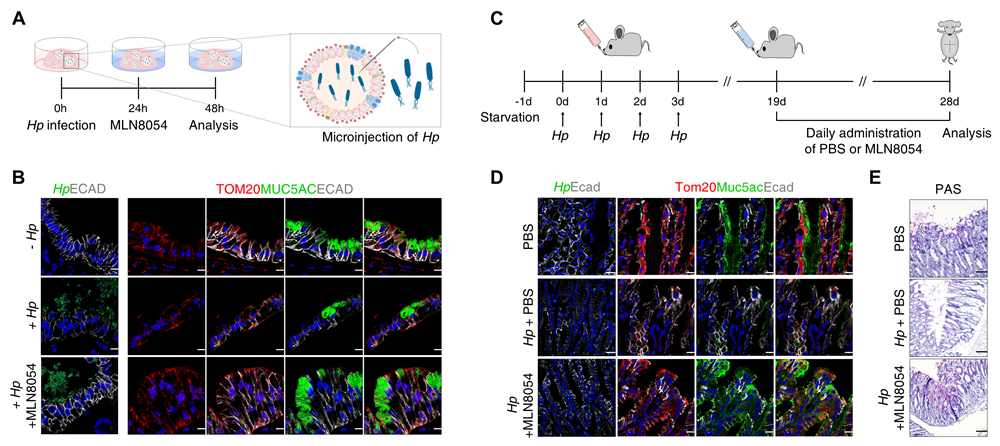
The images show how the MLN8054 treatment restores the functions of the stomach lining in the model of H. pylori infected organoids and mice. (Korea Research Institute of Bioscience & Biotechnology)
By Lee Dasom
Domestic researchers have proposed a new method to treat infection from Helicobacter pylori (H. pylori), a key cause of stomach cancer.
The Korea Research Institute of Bioscience & Biotechnology (KRIBB) on Nov. 12 said it found a candidate substance for treating H. pylori infection using human antrum gastric organoids.
Caused by H. pylori germs on the gastric mucosa, the infection is a common infectious disease that causes gastritis, gastric and duodenal ulcers, and gastric adenocarcinoma.
The World Health Organization designates H. pylori as a Class 1 carcinogen that raises the risk of stomach cancer for those infected three to six times higher than those not infected.
Antibiotics are commonly used to eliminate H. pylori, but they often never sufficiently reach H. pylori bacteria and have a side effect of killing beneficial germs.
With rising demand for the development of new treatments, domestic researchers identified how gastric mucosa cells are damaged in the early stage of H. pylori infection and discovered a candidate material that restores such cells.
In the model of the early stage of the infection using gastric organoids, the research team observed how vaculating cytotoxin secreted by H. pylori worsens mitochondria function in gastric mucosa cells.
The team also discovered that MLN8054, a phosphorylation factor (kinase), restores damaged cells in the aforementioned models of organoids and mice.
Lead researcher Son Mi-Young said, "In the past, cancer cells lines or mouse models were mainly used in H. pylori-related research, but the use of organoids is expected to raise the success rate of developing new drugs by predicting human reactions and deriving effective ingredients quickly and accurately."
